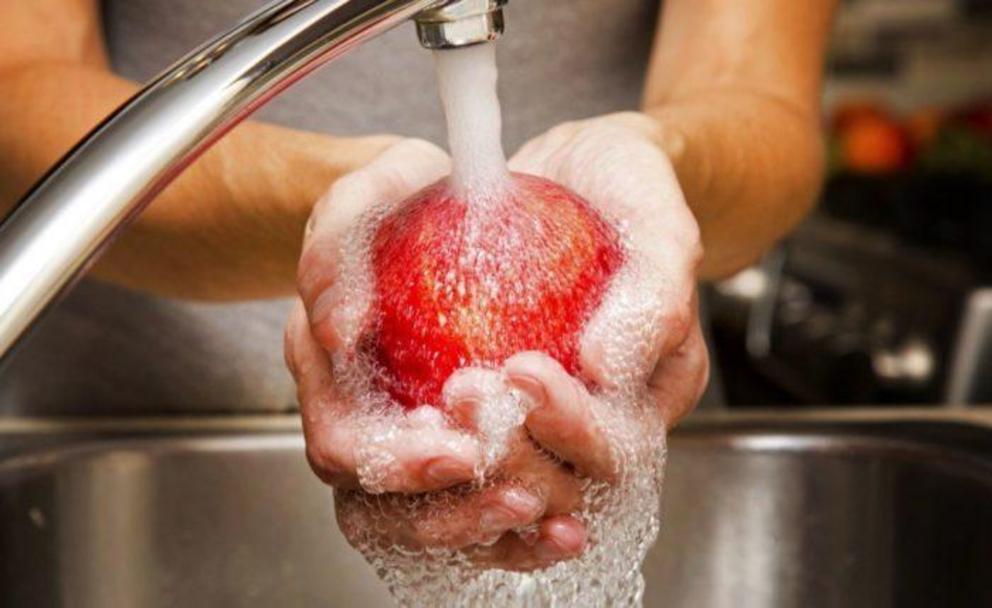Study: baking soda can remove large amounts of pesticide residue from fruits and vegetables
In Brief
- The Facts:
Organic foods can often be expensive, luckily there is a simple solution we can easily use to wash our produce and reduce the amount of chemicals we are ingesting into our bodies.
- Reflect On:
It's easy to get discouraged with the amount of environmental toxins we are exposed to on a regular basis. Sometimes a little awareness goes a long way and there are simple solutions to some of the issues we face.
By now, many of us are aware of the importance of eating organic produce and other foods. Although we may often try our best, sometimes the organic option can cost an arm and a leg so we opt for conventionally grown foods from time to time. Perhaps we even follow the advice given by the Environmental Working Group’s “Clean Fifteen” and “Dirty Dozen” program. While this is a great way to reduce your exposure to chemically laden pesticides known to have many detrimental side effects, not to mention the fact that they are essentially a straight up poison, designed specifically to kill, pests, another simple option also exists. The use of baking soda to wash produce effectively removes up to 96 percent of pesticides from fruit and vegetables.
The Research
Scientists from the University of Massachusetts published a study in the journal, Agricultural and Food Chemistry on the effects of baking soda on gala apples. The apples used in the study were sprayed with two types of pesticides: phosmet, a known insecticide and thiabendazole, which is a fungicide. After the pesticides were given time to penetrate into the apple peels, the apples were rinsed with three different liquid solutions: tap water, a ratio of 1% baking soda to 99% water and a commonly used bleaching solution.
Lead author, Dr Lili He from the University of Massachusetts said, “Pesticide residues may remain on agricultural produce, where they contribute to the total dietary intake of pesticides. Concerns about potential hazards of pesticides to food safety and human health have increased, and therefore, it is desirable to reduce these residues.”
Results Of The Study
After 12 minutes of gentle scrubbing the baking soda solution was able to remove 80% of the thiabendazole and 15 minutes to remove 96% of the phosmet. A type of electromagnetic mapping technology was used to determine the percentage of pesticide residue on the surface and inside the apples.
While this is just one study, there has been plenty of research conducted on the use of baking soda to remove pesticides from fruits and vegetables. So, while organic is usually best, this method can be used safely and effectively to wash your produce and reduce your exposure to harmful, often carcinogenic, chemical pesticides.
According to Dr. He, ‘The use of pesticides in agriculture has led to an increase in farm productivity. However, pesticide residues may remain on agricultural produce, where they contribute to the total dietary intake of pesticides. Concerns about potential hazards of pesticides to food safety and human health have increased, and therefore, it is desirable to reduce these residues.’ The results showed that the baking solution was most effective in removing thiabendazole and phosmet on and in apples. The standard post-harvest washing method with bleach solution and a two-minute wash did not effectively remove these pesticides.’
As the Legendary Jane Goodall once said, “How could we have ever believed that it was a good idea to grow our food with poisons?”
Rising Concerns Over Commonly Used Pesticide, Glyphosate
Something has recently come to my attention and sort of shocked me I do my best to avoid genetically modified foods, (GMO’s) whether or not ingesting GMO’s themselves are safe or not, personally I avoid them because I know if something is genetically modified, then it also means that product has been sprayed relentlessly with pesticides, and often glyphosate is one of these pesticides. But, glyphosate is actually commonly used on hundred of different crops regardless of if they are genetically modified or not. To read more about the potential dangers of glyphosate, click here.
Try This Solution For Yourself
Baking soda is not only a great staple to have for so many different uses, your can read ore about some of those uses here, but it is also extremely cost effective as well and readily available at pretty much any grocery store. To use the baking soda method, simply follow the instructions below,
- Add a few teaspoons of baking soda to a bowl of water
- Add the produce to be washed to the bowl
- Soak produce for 15 minutes
- Rinse well with cold water
- Enjoy.
Sometimes a little awareness goes a long way, don’t forget, knowledge is power!

